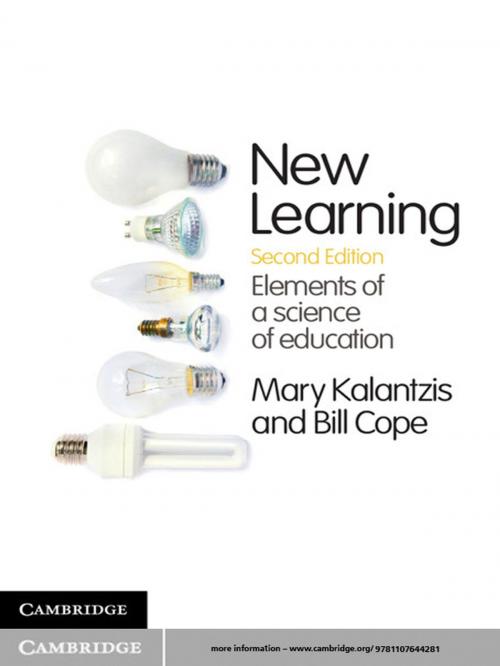New Learning
Elements of a Science of Education
Nonfiction, Reference & Language, Education & Teaching, History, Educational Theory, Educational Reform| Author: | Mary Kalantzis, Bill Cope | ISBN: | 9781139564960 |
| Publisher: | Cambridge University Press | Publication: | June 29, 2012 |
| Imprint: | Cambridge University Press | Language: | English |
| Author: | Mary Kalantzis, Bill Cope |
| ISBN: | 9781139564960 |
| Publisher: | Cambridge University Press |
| Publication: | June 29, 2012 |
| Imprint: | Cambridge University Press |
| Language: | English |
In the second edition of New Learning: Elements of a Science of Education, renowned authors Mary Kalantzis and Bill Cope explore the contemporary debates and challenges in education. In this time of dramatic social change, education represents significant possibilities and opportunities. Written in accessible and lively style, this book examines learners and their learning environments and considers how schools can prepare their students for the future. Featuring new classroom examples, case studies and excellent online resources at newlearningonline.com, this book strikes a balance between theoretical understandings and their practical applications. Fully revised and updated, the second edition and its companion website include greater coverage of educational psychology and cognitive science perspectives, the use of assessment in education and curriculum developments around the world. New Learning, Second Edition is an inspiring and comprehensive resource for pre-service and in-service teachers alike.
In the second edition of New Learning: Elements of a Science of Education, renowned authors Mary Kalantzis and Bill Cope explore the contemporary debates and challenges in education. In this time of dramatic social change, education represents significant possibilities and opportunities. Written in accessible and lively style, this book examines learners and their learning environments and considers how schools can prepare their students for the future. Featuring new classroom examples, case studies and excellent online resources at newlearningonline.com, this book strikes a balance between theoretical understandings and their practical applications. Fully revised and updated, the second edition and its companion website include greater coverage of educational psychology and cognitive science perspectives, the use of assessment in education and curriculum developments around the world. New Learning, Second Edition is an inspiring and comprehensive resource for pre-service and in-service teachers alike.















